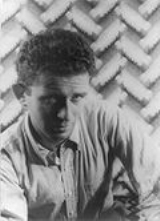
, essayist, poet, playwright, screenwriter
, and film director
.
Along with Truman Capote
, Joan Didion
, Hunter S. Thompson
, John McPhee
, and Tom Wolfe
, Mailer is considered an innovator of creative nonfiction
, a genre sometimes called New Journalism
, which superimposes the style and devices of literary fiction onto fact-based journalism. He was awarded the Pulitzer Prize
twice and the National Book Award
once. In 1955, Mailer, together with John Wilcock, Ed Fancher and Dan Wolf, first published The Village Voice
, which began as an arts and politics oriented weekly newspaper distributed in Greenwich Village
.
Every moment of one's existence one is growing into more or retreating into less. One is always living a little more or dying a little bit.![]()
The final purpose of art is to intensify, even, if necessary, to exacerbate, the moral consciousness of people.![]()
The sickness of our times for me has been just this damn thing that everything has been getting smaller and smaller and less and less important, that the romantic spirit has dried up, that there is no shame today.... We're all getting so mean and small and petty and ridiculous, and we all live under the threat of extermination.![]()
Writing books is the closest men ever come to childbearing.![]()
You're contending with a genius, D.J. is his name, only American alive who could outtalk Cassius Clay, that's lip.![]()
This is D.J., Disc Jockey to America turning off. Vietnam, hot dam.![]()
With the pride of an artist, you must blow against the walls of every power that exists, the small trumpet of your defiance.![]()
His consolation in those hours when he was most uncharitable to himself is that taken at his very worst he was at least still worthy of being a character in a novel by Honoré de Balzac|Balzac, win one day, lose the next, and do it with boom! and baroque in the style.![]()

